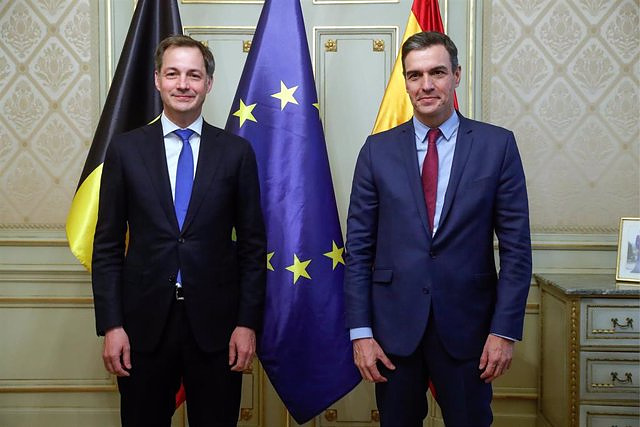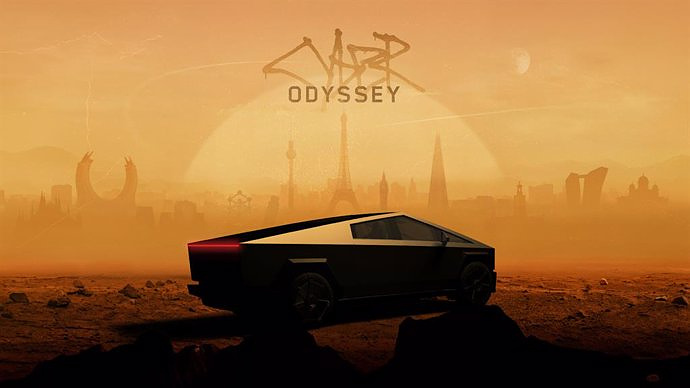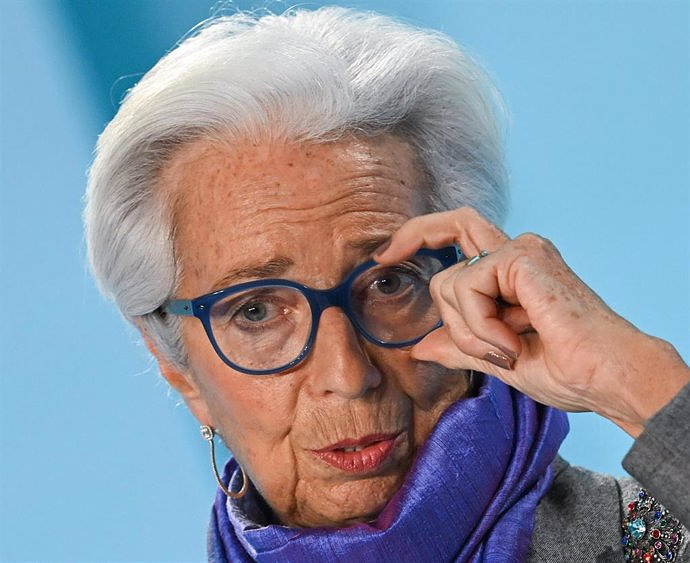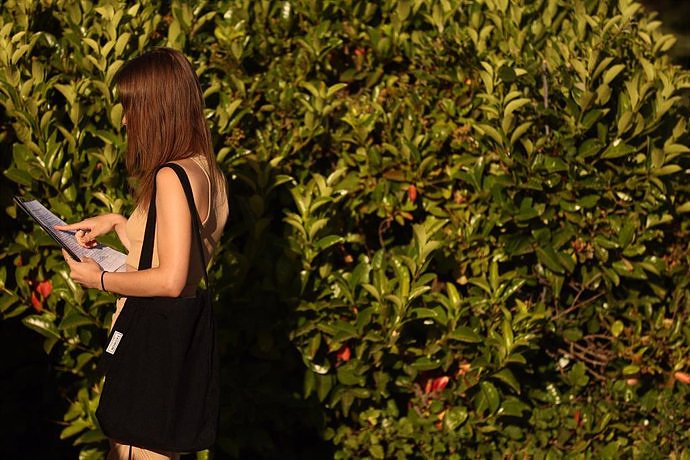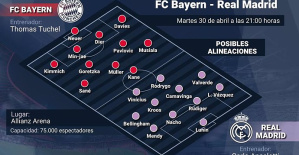The president will be accompanied by the Belgian prime minister to show a united European front
MADRID, 22 Nov. (EUROPA PRESS) -
The President of the Government, Pedro Sánchez, will carry out a mini tour of Israel, Palestine and Egypt this Thursday and Friday accompanied by the Belgian Prime Minister, Alexander de Croo, with which both aspire to show a united European front and try to contribute ideas and solutions in the face of peace in the Middle East.
The trip comes after Israel and Hamas agreed to a four-day "humanitarian pause" during which the Islamic Resistance Movement will release 50 of the hostages it is holding -- women and children -- and Israel will proceed to the release of 150 Palestinian prisoners, also women and minors. The agreement, which has been possible thanks to the mediation of Qatar, Egypt and the United States, will enter into force this Thursday.
From Moncloa, they highlight the importance that the president gives to the resolution of the conflict between Israel and Hamas and that has led him to choose the region as his first destination outside of Spain after his re-election. As for the fact that he does so accompanied by De Croo, it is explained because Spain holds the rotating presidency of the EU at the moment and it will be Belgium that will succeed him on January 1.
Both want to contribute ideas and solutions to a conflict that the President of the Government understands has not been receiving the attention it deserved from the international community and in whose resolution he considers that Europe has to play an essential role since it cannot afford a new war at its doors, in addition to that of Ukraine, explain government sources.
The will is to raise the political profile of the EU both in the search for immediate solutions to the dramatic humanitarian situation in the Gaza Strip, and more in the long term in order to resolve a conflict that has lasted for more than seven decades.
The trip will start in Jerusalem, where Sánchez and De Croo are scheduled to meet with the country's president, Isaac Herzog, and with the prime minister, Benjamin Netanyahu. To both of them, the president will reiterate his unmitigated condemnation of the terrorist attack perpetrated by Hamas on October 7, which left more than 1,200 dead, including the Spaniards Iván Illarramendi and Maya Villalobo.
Likewise, Sánchez will recognize Israel's right to defend itself, insisting once again, as he has been doing in recent weeks, that the military response that is being carried out in the Gaza Strip has to be within the limits that marks International Humanitarian Law and International Law.
Limits that the president already said last week that he considers Israel is not respecting, calling its response "disproportionate." Likewise, during the investiture debate, he expressed his rejection of the "indiscriminate killing of Palestinians in Gaza and the West Bank."
In Moncloa they admit that the numbers of civilian deaths - more than 14,000, including more than 5,800 minors - are difficult to assimilate and that is why they will not stop condemning it, insisting that we must distinguish between Hamas, which is a terrorist organization , and the Palestinian population.
Likewise, they also consider that it is not wise to approach the fight against terrorism only from a military approach, given that Hamas is much more than a terrorist organization, and they believe that it is even counterproductive to the ultimate objective declared by Netanyahu of guaranteeing the security of Israel. as Sánchez has also publicly stated.
The two heads of government will then travel to Ramallah, where they are scheduled to meet with the Palestinian president, whom Sánchez already saw on October 22 in Cairo. For Moncloa, it is essential that the idea that the interlocutor for peace is the Palestinian Authority with its president at the helm is getting through.
In this sense, they also highlight that it seems that the approach is opening up that the Palestinian Authority could be the one to take the reins of the Gaza Strip once hostilities cease, although it is an issue that is still in a very embryonic phase and that It would surely require some intermediate phase with an international or Arab presence on the ground.
Since the new crisis broke out in Gaza, Sánchez has claimed the need to advance the two-state solution and the recognition of the Palestinian State as the best way to guarantee peace as well as the security of Israel.
The president already said in the investiture debate that it will be one of his priorities this term. Their desire is to work with other European partners so that there is consensual recognition instead of opting for the unilateral route and that when it occurs it is not a mere declarative gesture but rather has a political meaning and can contribute to peace, they explain from Moncloa.
This is also part of his proposal for an international peace conference once hostilities cease to give a concrete political horizon to the Palestinians, which more than 80 countries already support, including those of the EU and the Arab League, according to government sources.
Already on Friday, the two leaders have scheduled meetings in Cairo with the Egyptian president, Abdel Fattá al Sisi, and with the secretary general of the Arab League, Ahmed Abul Gheit.
Egypt is a key country in the region and has been the main architect, together with Qatar, of the humanitarian pause agreement reached in the last few hours thanks to the fact that it maintains dialogue with both Hamas and Israel, with which it has had a peace agreement since 1979.
Likewise, it is essential for the entry of humanitarian aid into the Gaza Strip, since the only open border crossing is Rafá, through which foreign citizens trapped in the coastal enclave have also been leaving. To date, more than 170 Hispano-Palestinians and their families have managed to leave the Strip in this way.
Precisely, Sánchez and De Croo will travel here to finish their tour. With this, they want to focus on the importance of the entry of humanitarian aid into Gaza and maintaining international assistance, given the dramatic situation in this territory, where there are already more than 1.7 million internally displaced people out of around 2 .3 million inhabitants.
The Government has firmly defended the need not only to maintain development aid and humanitarian aid but to increase it in the current context. In this sense, it has decided to practically triple it compared to 2022, going from 18 million to 48.5 million this year.

 Exploring Cardano: Inner Workings and Advantages of this Cryptocurrency
Exploring Cardano: Inner Workings and Advantages of this Cryptocurrency Seville.- Economy.- Innova.- STSA inaugurates its new painting and sealing hangar in San Pablo, for 18 million
Seville.- Economy.- Innova.- STSA inaugurates its new painting and sealing hangar in San Pablo, for 18 million Innova.- More than 300 volunteers join the Andalucía Compromiso Digital network in one month to facilitate access to ICT
Innova.- More than 300 volunteers join the Andalucía Compromiso Digital network in one month to facilitate access to ICT Innova.-AMP.- Ayesa acquires 51% of Sadiel, which will create new technological engineering products and expand markets
Innova.-AMP.- Ayesa acquires 51% of Sadiel, which will create new technological engineering products and expand markets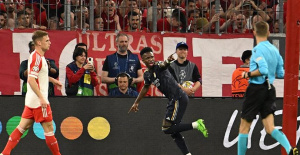 Real Madrid saves a draw in Munich and will appeal again to the Bernabéu
Real Madrid saves a draw in Munich and will appeal again to the Bernabéu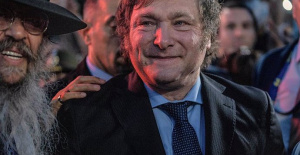 The Congress of Argentina approves the omnibus law that allows the privatization of some public companies
The Congress of Argentina approves the omnibus law that allows the privatization of some public companies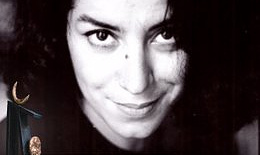 Marjane Satrapi, Princess of Asturias Award: "I am angry with Borrell, if I had him in front of me I would slap him"
Marjane Satrapi, Princess of Asturias Award: "I am angry with Borrell, if I had him in front of me I would slap him"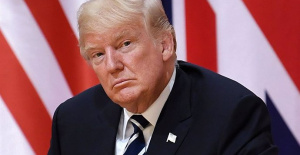 Judge fines Trump $9,000 for contempt of court and considers sending him to prison during trial
Judge fines Trump $9,000 for contempt of court and considers sending him to prison during trial How Blockchain in being used to shape the future
How Blockchain in being used to shape the future Not just BTC and ETH: Here Are Some More Interesting Coins Worth Focusing on
Not just BTC and ETH: Here Are Some More Interesting Coins Worth Focusing on Valencia unanimously approves the ordinance to allocate spaces to test innovative initiatives
Valencia unanimously approves the ordinance to allocate spaces to test innovative initiatives UPV researchers promote a paid master's degree as a "talent factory" in integrated photonics
UPV researchers promote a paid master's degree as a "talent factory" in integrated photonics A spin-off of the UV works on obtaining high-resolution 3D biomedical images in real time
A spin-off of the UV works on obtaining high-resolution 3D biomedical images in real time They create a bank of machinery sounds to prevent breakdowns through artificial intelligence
They create a bank of machinery sounds to prevent breakdowns through artificial intelligence A million people demonstrate in France against Macron's pension reform
A million people demonstrate in France against Macron's pension reform Russia launches several missiles against "critical infrastructure" in the city of Zaporizhia
Russia launches several missiles against "critical infrastructure" in the city of Zaporizhia A "procession" remembers the dead of the Calabria shipwreck as bodies continue to wash up on the shore
A "procession" remembers the dead of the Calabria shipwreck as bodies continue to wash up on the shore Prison sentences handed down for three prominent Hong Kong pro-democracy activists
Prison sentences handed down for three prominent Hong Kong pro-democracy activists ETH continues to leave trading platforms, Ethereum balance on exchanges lowest in 3 years
ETH continues to leave trading platforms, Ethereum balance on exchanges lowest in 3 years Investors invest $450 million in Consensys, Ethereum incubator now valued at $7 billion
Investors invest $450 million in Consensys, Ethereum incubator now valued at $7 billion Alchemy Integrates Ethereum L2 Product Starknet to Enhance Web3 Scalability at a Price 100x Lower Than L1 Fees
Alchemy Integrates Ethereum L2 Product Starknet to Enhance Web3 Scalability at a Price 100x Lower Than L1 Fees Mining Report: Bitcoin's Electricity Consumption Declines by 25% in Q1 2022
Mining Report: Bitcoin's Electricity Consumption Declines by 25% in Q1 2022 Oil-to-Bitcoin Mining Firm Crusoe Energy Systems Raised $505 Million
Oil-to-Bitcoin Mining Firm Crusoe Energy Systems Raised $505 Million Microbt reveals the latest Bitcoin mining rigs -- Machines produce up to 126 TH/s with custom 5nm chip design
Microbt reveals the latest Bitcoin mining rigs -- Machines produce up to 126 TH/s with custom 5nm chip design Bitcoin's Mining Difficulty Hits a Lifetime High, With More Than 90% of BTC Supply Issued
Bitcoin's Mining Difficulty Hits a Lifetime High, With More Than 90% of BTC Supply Issued The Biggest Movers are Near, EOS, and RUNE during Friday's Selloff
The Biggest Movers are Near, EOS, and RUNE during Friday's Selloff Global Markets Spooked by a Hawkish Fed and Covid, Stocks and Crypto Gain After Musk Buys Twitter
Global Markets Spooked by a Hawkish Fed and Covid, Stocks and Crypto Gain After Musk Buys Twitter Bitso to offset carbon emissions from the Trading Platform's ERC20, ETH, and BTC Transactions
Bitso to offset carbon emissions from the Trading Platform's ERC20, ETH, and BTC Transactions Draftkings Announces 2022 College Hoops NFT Selection for March Madness
Draftkings Announces 2022 College Hoops NFT Selection for March Madness